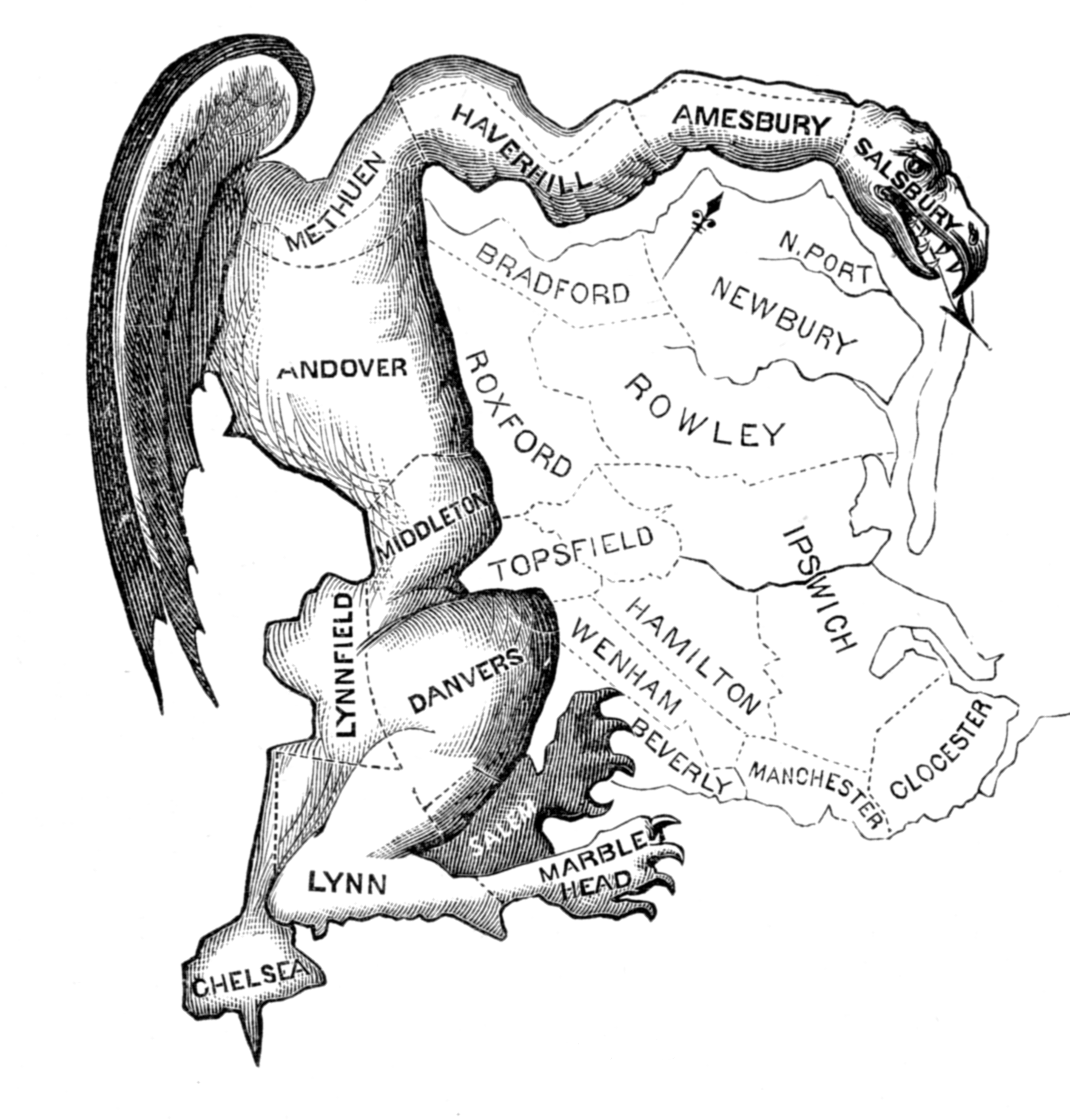In America, elections are supposed to represent the will of the people, not the will of politicians.
But that doesn’t stop partisan officials from manipulating voting maps to keep themselves and their party in power. Having elected officials draw the districts in which they will run is like the proverbial fox guarding the chicken coop—the redistricting process is used to box potential challengers out of districts and to design districts that maximize support for those in control of the process.
That’s not what democracy is all about. We need to ensure the process of drawing districts is impartial so that our government can truly be of, by, and for the people.
Massachusetts was home to the first gerrymander, or electoral district with boundaries designed to favor one party. The word was coined in 1812 in reaction to a redrawing of Massachusetts state senate election districts under Governor Elbridge Gerry. One of the unfair districts was so contorted and misshapen that a writer at the Boston Gazette claimed it resembled a salamander.

The original gerrymander (1812)
Until 2010, redistricting in Massachusetts was conducted behind closed doors on Beacon Hill with little discussion or public input. Those in leadership positions in the state legislature were given primary control over how district lines were drawn, subject to approval from the House and Senate. In 2001, legislators on the House redistricting committee were handed a leadership-designed map 10 minutes prior to the vote and told to vote “yes”—and they did. That’s no way to choose our leaders.
That’s why Common Cause Massachusetts launched an aggressive campaign in the early 2000s to fix Massachusetts’ broken redistricting process. We sought sought an independent redistricting commission to ensure that maps would be drawn so:
- Towns and neighborhoods within cities would be kept intact and not split between multiple legislators
- Districts would be compact and contiguous
- Addresses of candidates, including current elected officials and potential candidates would not be part of the calculation
- Districts would uphold the federal Voting Rights Act and not reduce minority representation
- All aspects of the process would be public, including all meetings and documents
- Citizens would be able to submit maps and provide public comment on any proposals
While our campaign did not achieve an independent commission, it did result in the legislature radically changing how they conducted redistricting in 2010. Common Cause and our allies fought for strict principles of openness and transparency, such as having the Joint Committee on Redistricting conduct multiple hearings across the state, maintain a website to update the public on their progress, have publicly available software where citizens could design maps, and release maps with 10 days advance. We also called for strict map-making criteria such as compactness, adequate representation of minority voters, and not using the process for political advantage.
The Joint Redistricting Committee not only met our goals, but exceeded them. The Committee released maps more than two weeks in advance with a public comment period, held dozens of hearings, and accepted maps from the public and from advocacy groups. The maps themselves reduced the number of towns and cities split between districts, were more compact, and left many incumbent politicians unhappy. The process was conducted without political retribution and enjoyed widespread acclaim in the media and in the advocacy community.
Common Cause Massachusetts also independently conducted its own “Redistricting Olympics,” which solicited citizens to draw their own maps and provided monetary prizes as an incentive. We used publicly available open-sourced software to engage citizens to learn more about the process and submit “alternative maps” to the legislature. 58 maps from residents across the state were submitted.
As a result of the work Common Cause Massachusetts and allies, the redistricting process in 2010 was the state’s most fair, open, and transparent in history and was widely recognized as one of the best in the country. And we will continue to fight for an open, fair, and non-partisan redistricting process in 2020. But we must work to lock in these gains for the future with an independent redistricting commission.
Fighting for a better redistricting process including an independent redistricting commission is one of the ways we are fighting for better elections in Massachusetts, as well as supporting Automatic Voter Registration, Election Day registration, and Early Voting expansion. Every eligible American deserves to have their voice heard and their vote counted in selecting the people and policies that will determine the future of our communities. Join Common Cause as we work to improve every level of the voting process.
Join Us
Push For Fair Districts
Sign up to stay up-to-date on the fight for impartial voting maps in Massachusetts, including volunteer opportunities and legislative updates.
